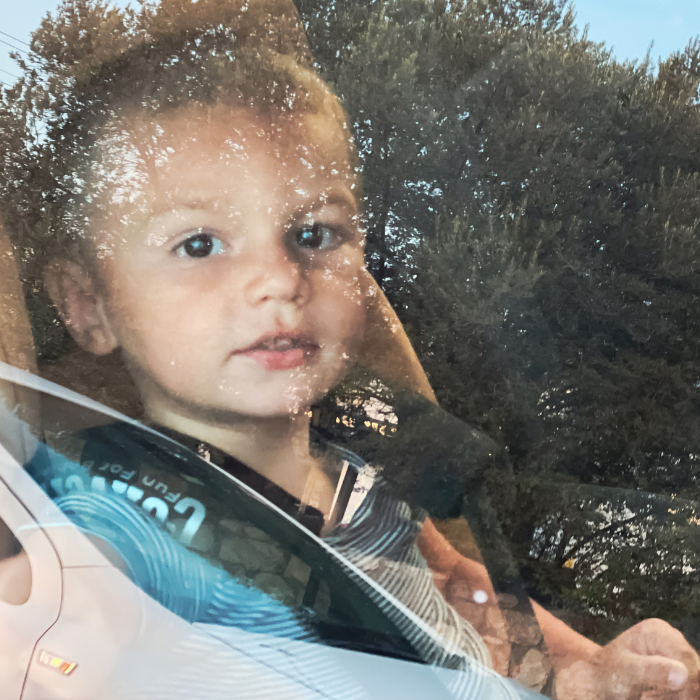
Is it time for a good old-fashioned holiday here in Aotearoa? Here’s how to get kids involved in the planning – and craft an itinerary everyone will love.
Family holidays always sound like a good idea in theory, but typically, planning to go away can be super stressful. You can’t please everyone, you try to pack too many activities into limited time, and you underestimate how long travel time is (and how many toilet stops you’ll need along the way). Here’s our comprehensive guide to planning a classic Kiwi family holiday with less stress and more fun.
WHERE ARE YOU GOING?
When you have children, a good rule of thumb for choosing your vacation destination should be: How child-friendly is it? “Kid-friendly” doesn’t need to mean that there are major attractions galore, it can mean that there’s something fun to see (like the giant L&P bottle in Paeroa) or a good playground to visit.
Get kids involved: If your children are old enough, ask for their input on where to visit. You might have parameters like: It needs to be within a three-hour drive of home, or: It needs to have a beach nearby. You could print out a map, circle a rough area, and ask the kids to suggest some towns within that circle. Or you can pre-decide on two options and have the children choose one.
HOW ARE YOU GETTING THERE?
Is an aeroplane involved? Do you need to rent a vehicle? Are you planning a campervan adventure? Will you need to take a shuttle bus somewhere? Relying on public transport? How about uber/taxi services? Make a Plan A with regard to your transport, and then consider Plan B. If you’re taking the family vehicle, you’ll need to ensure it’s roadworthy, and it’s a good idea to check the tyre pressure and top up oil/windscreen fluid, and check your insurance and AA membership are up-to-date. Do you need to rent a car seat, and where can you get this from? You’ll also need to budget – for petrol, road tolls, ferry crossings, parking, bus passes, pit stops along the way.
Get kids involved: Once you’ve decided on your destination, talk to the children about what forms of transportation you’ll be using. Print out a map and plot the trip from home to holiday, and talk about how much time will be spent in the car. Talk about what you can do to keep entertained while you’re travelling – games you can play, activities to do, books to read, music to listen to, screens with content downloaded, snacks for eating on the road.
WHERE ARE YOU STAYING?
There are so many accommodation options, it’s really up to your budget and what you can handle in terms of being in close quarters with your family members. If you can manage it, make some space – a place with a large lounge to play in, big lawn to run around on, or extra bedroom for time-out will always be appreciated. Many motels and hotels have special amenities for kids, like activity packs, games and movies you can borrow, and swimming pools. They may also be able to connect you to local activities for discounted rates (they may have relationships with other tourism providers in the area). Before you book, give them a call or check their website to see what they can offer.
Get kids involved: Give your children a heads-up on what the accommodation will be like. Are they expected to share a room with you at their grandparents’ house? Sleep on a rollaway bed in a motel? Bunk down in a campervan? Snooze in a tent (and share the facilities with other campers)? Or will they have their own room at a rental bach? It’s good to give them an idea of what to expect so they are prepared (and don’t get wild ideas about having their own room at a faraway castle).
WHAT WILL YOU EAT?
Meals can be a challenge when you’re travelling. If you’re staying in a place with a kitchen or even a kitchenette, you can save money and time by cooking simple meals for your family – and this is often preferable for kids, as they can tire out more easily on holiday and need the routine of down time and preparing for bed early in the evening. Make a note of where the local supermarket is that’s close to where you’re staying, and if you can, pack lots of non-refrigerated snacks that everyone can eat in a pinch, like muesli bars, fruit (fresh and dried), crackers, nuts, yoghurt drops, and rice cakes. Another great tip to save money is to always eat breakfast at your accommodation – simple cereal and yoghurt or toast is easily managed and you don’t need to wait.
Get kids involved: Let kids help plan the menu for the trip and make a shopping list. If you are planning on eating out, they can help choose where you’ll eat – perhaps there’s a great kid-friendly café in a museum you’re visiting, or one day everyone gets the treat of fast food for dinner. Plan as much ahead as possible, but do leave room for flexibility.
Tip: If you can, get groceries delivered to your accommodation – order online and have them delivered after you arrive, to save time and effort
WHAT WILL YOU PACK?
Children often think of packing for a family holiday in terms of what toys they want to bring with them. If luggage or space are limited, you’ll need to set up the expectations for this early on. It’s a good idea to label your child’s items with your phone number in case they get lost/left behind, and leave anything super-special at home. Unless you’re planning to go to a five-star restaurant, play clothing is fine, and dressing in layers is best considering our changeable weather. Consider whether you can do laundry at the accommodation or at a laundromat nearby, and build in some laundry time to the schedule if necessary.
Get kids involved: Assign each child a small bag or backpack and let them pack what they want – it just needs to fit into the bag. Remind them that they need to care for their chosen items and pack them up at the end of the stay. Lay the backpack down on the floor and unpack it, and take a photo of everything that is inside – that way, when your child is packing up, they can see they have everything.
WHAT WILL YOU DO?
Ah, the best part of the family holiday – activities! If your children are old enough, they can help you do internet searches for things to do nearby where you’re staying, or on the road if you’re taking a road trip/campervan adventure. It’s fine to just brainstorm things people want to do, like go to the playground, mini golf, fishing, see animals. The novelty of being away from home is often half the fun for children, so what you do doesn’t need to be expensive. Build in some down time – it’s a good idea to have a day (or two) off for everyone to just relax and recharge.
Get kids involved: Hold a family meeting where your children can have a say in the activities. Write everyone’s ideas down on a whiteboard and vote on what people want to do most. It might be a good idea to have one child decide what to do in the morning and the other in the afternoon, then swap. Write each day’s itinerary down on our handy printable and at the end of each day, record a few sentences about what they most enjoyed.








